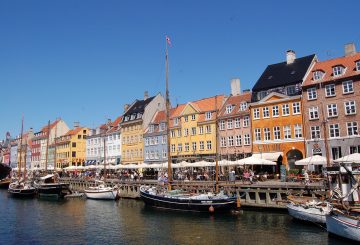
Relocation brings excitement and anticipation – and often anxiety and stress as well. Preparation with reliable information can help. GoinGlobal career guides contain an average of 500 resources per guide, including topics ranging from top job sites and industry trends to work permit regulations and resume/CV guidelines. But if you want to get a leg up before you go, you will also want to prepare for the social and cultural challenges of relocating. Our guides offer insights on the local culture and advice on how to act appropriately in both social and professional settings, including sections for exploring daily life, communication styles, as well as office conduct, management strategies and business practices.
In each of our 120-plus Country and City Career Guides, seek the section called ‘Living There’.
Excerpt from GoinGlobal’s City Career Guide for Berlin, Germany
Acting Like a Local
- Dining etiquette is Continental, meaning the knife is held in the right hand and the fork in the left. Do not switch the fork to the right hand during the meal.
- Do not begin eating until the host says Guten Appetit (bon appétit, enjoy your meal).
Common toasts are Zum Wohl! (when toasting with wine) and Prost! (with beer). Both phrases mean ‘health.’- When entering a store, it’s customary to say Guten Tag (hello) and Vielen Dank, Auf Wiedersehen (thank you, good-bye) when leaving.
- It’s usual to tip in restaurants; this is done mainly by rounding up the bill.
- The person who extends the invitation will generally pay for the meal. An attempt to ‘fight’ over the bill may be taken literally by the German, and the guest will end up paying.
- A suggestion to get something to eat together is not considered an invitation.
- Since Germans are very direct communicators, it’s okay for guests to say they cannot eat certain items. Share this as soon as possible to avoid confusion, though.
- To integrate quickly, check with the local registration office, colleagues or online to find clubs and societies, or regular meetings where you can meet locals and fellow newcomers or share hobbies.
- Gifts are expected for social events, especially for private dinner parties. Appropriate gifts are fine chocolates, a sweet dessert wine or an after-dinner liqueur of good quality. When staying with a family, gifts from your home country are appropriate. Gourmet foods (maple syrup or pralines, for example), coffee table books or anything that reflects the host’s personal tastes are always appreciated, as is a handwritten thank you card.
- Inappropriate flowers to give include chrysanthemums, heather or callas (used mainly for funerals), red roses or orchids (too romantic). The bouquet should include an odd number of flowers (an old European tradition).
- Generally speaking, the phrase ‘How are you?’ (Wie geht es Ihnen?) is taken seriously. Asking the question without waiting for a reply is seen as impolite and superficial.
- Between lunch and dinner, Germans often enjoy an afternoon break of coffee or tea with cake, known as Kaffee und Kuchen, Kaffeetrinken or Kaffeeklatsch.
- When ordering a beer, specify Dunkles (dark) or Helles (light), ein Grosses or ein Kleines (large or small), vom Fass (draft) or Flasche (bottled).
Explore GoinGlobal for relocation pre-departure preparedness
GoinGlobal has reliable and current career and employment resources for the U.S. and over 70 other countries – 120 locations worldwide. Contact the career center staff or alumni association at your alma mater college/university for support in preparing for relocation adventures and for getting the most out of GoinGlobal resources.*
*Access to GoinGlobal’s resource database is provided through subscribing institutions. Contact your college/university’s career center or library for access instructions.



